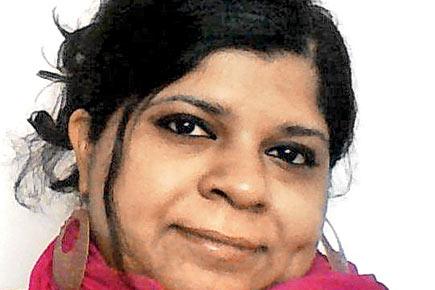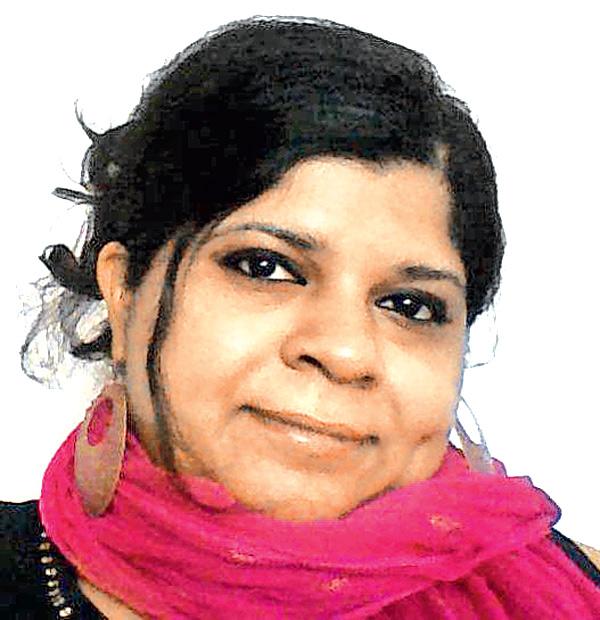New Delhi’s fierce, indie publishing house, Yoda Press, releases its first children’s ebook, Humans In My Backyard. Founder Arpita Das tells Kareena Gianani how more stories which thrive on complexities are on their way for young readers

Arpita Das
Since its inception in January 2004 in New Delhi’s Connaught Place, Yoda Press has stuck by the virtues of the eponymous character of Star Trek — it published LGBTQ writing when few Indian publishers dared to, maintained an academic stance while other publishers dumbed things down, and crossed over to popular writing (travel, memoirs) with equal ease. Its last, thought-provoking book on the Partition, Boria Majumdar’s impeccably researched Once Upon a Furore: Lost Pages of Indian Cricket is proof enough that Yoda Press isn’t one to shy away from experimentation.
ADVERTISEMENT

Arpita Das, founder of Yoda Press
Its founder, Arpita Das, says it was only a matter of time that the publishing house ventured into children’s literature. An understandable ambition, given Duckbill Books was founded in Yoda Press’s neighbourhood two years ago, followed by Penguin, Rupa and Scholastic launching their young adult imprints soon after. "So many of us felt that children’s writing in India was instructive and only too ready to force messages and morals down children’s throats. I wanted to have narratives stand on their own — good literature, without its pedantic morals, always makes some impact.”
But ambition wasn’t enough to cut it for Das — the children’s book, too, had to have the alternative spirit of Yoda Press’ previous titles. Das took four years to work on the indie publishing house’s first children’s and only-ebook title, Humans In My Backyard (author Vishal Menon, a wildlife photographer). The book is about a tusker, Thyagarajan, lovingly called Glue, who roams the forest, drifts away to form his own community as an adult, but cannot escape the harsh realities tuskers in India face every day.
The true story is based on the elephant Menon came to know over 15 years in a forest at the foothills of the Nilgiris, near Ooty. Menon’s friend, Mark Davidar, to whom he dedicates the book, built his home in a way that was friendly for the tusker. “I approached Das with a few photographs and the good, ol’ PowerPoint presentation,” says Menon with a chuckle. He adds that the images were made over the life of the tusker and coincided with the musings he had been having about his purpose as a wildlife photographer. “On one hand, I knew how violent tuskers can be, and how serious the animal-human conflict is in many areas. On the other hand, I saw this one tusker trusting Davidar’s home, coming in when it pleased for food, water and shelter. It was a story begging to be told,” says Menon.
What worked for Das was that Menon’s wasn’t just another “simple, cute” story for children with a happy ending. “There’s joy, but there’s also sorrow, and I like the complexity. Some believe children should be kept away from, say, ideas of death, or poverty. But I believe children’s lives are more complex than we like to believe. This story does justice to their world,” feels Das.
The challenge for an indie publisher, as always, is visibility, adds Das, and her decision to have her first children’s title only in the e-book format mitigates that to an extent. For her forthcoming children’s titles, Das is working with a writer on an LGBTQ theme.
“Through Yoda Press’ children books, I want to discuss what it is to come across difference — be it LGBTQ themes, sexuality, politics, even wildlife conservation. The best of schools inculcate uniformity in children, and later on, kids really struggle with ideas that do not fit the stereotype parents and schools uphold in the name of success. I want to bring out these complexities, and what better way than to publish a book on it?” says Das.
 Subscribe today by clicking the link and stay updated with the latest news!" Click here!
Subscribe today by clicking the link and stay updated with the latest news!" Click here!






